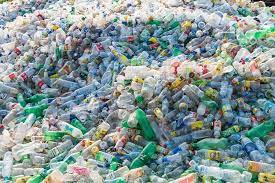The Federal Government, United Nations Industrial Development Organisation (UNIDO), and Japan have signed a Memorandum of Understanding (MoU) to promote sustainable plastic value chain through circular economy practices.
The implementation of the pact will be for a period of three years with an estimated project value of 319 million Japanese Yen, approximately $2,901,527.
Speaking during the MoU signing ceremony in Abuja on Friday, Minister of State for Environment, Mrs. Sharon Ikeazor, said the project would address plastic pollution in Nigeria.
Describing the project as timely as the global community is making concerted efforts in developing an international instrument to address plastic pollution holistically and sustainably, the minister said: “Nigeria, with a population of over 200 million people generates about 32 million tons of solid waste per year.
“The country also generates 1.15 million tons are plastic wastes and with little or no segregation which are illegally dumped in open spaces including drainages.
“Such wastes are healthcare wastes in dumpsites and burnt openly with an estimated 340 thousand tons ending up as marine litter”, Ikeazor added.
According to her, theunwholesome practices have been linked to the perennial flooding across the country, increased respiratory and cardiovascular diseases, increased incidences of cancer, loss of aquatic life, among others.
She expatiated: “The large volume of plastic waste being generated in the country presents circular economic business opportunities across the plastic value chain which should be properly harnessed for job/wealth creation.
“Also, it also holds prospects for the establishment of micro, small and medium scale enterprises, private sector investment including foreign direct investment in addition to preventing/reducing plastic leakages to the environment.
“One of the ways to realise this potential is to support the industry by demonstrating benefits of adopting circular economy practices with innovative technologies including recycling technology or alternative material production”, the minister added,
In his paper presentation titled ‘Promoting Sustainable Plastic Value Chain through Circular Economy Practices in Nigeria’ at the forum, an environmental expert in UNIDO Regional Office, Oluyomi Banjo, lamented that plastic wastes was a major global environmental problem which had rapidly increased.
Banjo explained that plastics originated mostly from land but also released into the marine environment and can affect the ecosystem and blue economy, adding that when mismanaged, plastics remain a source of Green House Gas emissions just as open burning of plastics emits toxic chemicals.
In his remarks, Japanese Ambassador to Nigeria, Mr Matsunaga Kazuyoshi, said the project would enhance the value of the Gulf of Guinea and boost Nigeria’s prosperity.
Similarly, in his goodwill message, the UNIDO representative and Regional Director, Nigeria Office, Mr. Jean Bankole, said that the organisation would support Nigeria and her partners in translating the agreement into concrete actions.
The Federal Ministry of Environment is the main counterpart while key partners are the Federal Ministry of Industry, Trade and Investment; National Environmental Standards Regulations and Enforcement Agency and Abuja Environmental Protection Board.
Others are, Lagos State Waste Management Authority, Lagos State Environmental Protection Agency, Manufacturers Association of Nigeria, Food and Beverage Recycling Alliance and Waste Management Society of Nigeria.




